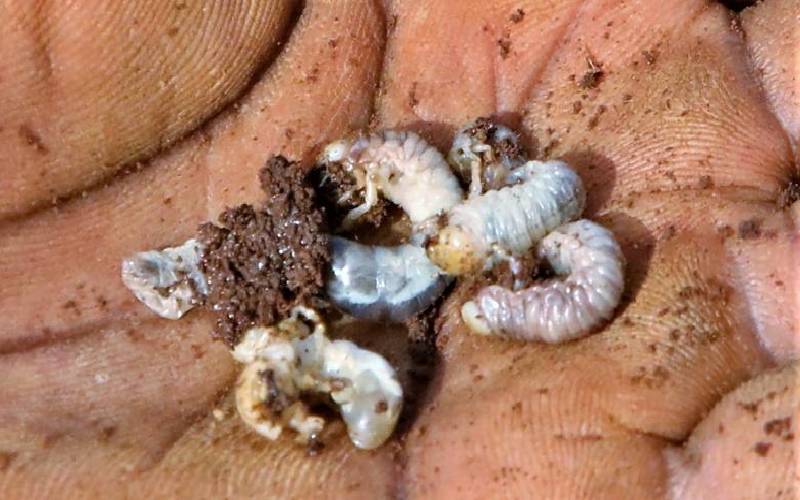×
The Standard e-Paper
Fearless, Trusted News

Grub worms have invaded Peter Chomba’s muguka farm. [Mose Sammy, Standard]
Khat (muguka) farmers in Kirinyaga County are decrying losses after their farms were invaded by grub worms.